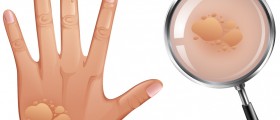Dry skin is an irritating and uncomfortable condition, but is not normally a serious problem. There are, however, a group of skin disorders that can lead to more serious dry skin problems. Most dry skin problems, though, are relatively easily solved or managed, particularly those that result from exposure to certain environmental factors.
This includes problems such as constant exposure to extremes of temperature or weather. Low humidity levels and too much bathing or showering can also lead to the onset of dry skin. In rare cases, dry skin might necessitate a consultation with a qualified dermatologist. However, before this becomes necessary, there are several measures that one can take in order to improve the condition of the skin.
Dry skin and its causes
Also known as xerosis, dry skin is generally caused by exposure to certain types of environmental conditions. Weather is one of the primary causes of dry skin, and our skin tends to be drier in winter than in any other season. During this time, temperatures become lowered and humidity levels can drop, which can contribute to the onset of dry skin. Similarly, in desert or conditions of extreme heat, there might be negative weather conditions that can cause dry skin to occur.
On the other hand, if you are indoors and constantly exposed to either air conditioning or central heating, then a drying of the skin might occur. Some people can also experience dry skin due to frequent showering and bathing, especially if the water they are using is hotter than appropriate. Swimming can also cause problems with regard to the skin, especially if the water is more chlorinated than it should be.
The use of detergents or soaps containing harsh chemical is not recommended for those who might be vulnerable to problems related to dry skin. Many commercial or widely used soaps and detergents can lead to a dehydrating of the skin. Taking this into account, one should try to avoid the use of these kinds of products.
Some skin problems can also be to blame with regard to dry skin. This includes atopic dermatitis, which is in essence a type of eczema. Those with this condition tend to have more sensitive skin. In some cases, this condition might be confused with excessive dryness in the skin. Psoriasis and some thyroid disorders can all lead to the development of dry skin. Both of these problems can be significant factors in the development of dry skin.


















Your thoughts on this
Loading...